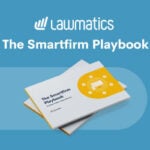The Clerkship Whisper Network
Many students know little about the work environment they’re entering when they take on this particularly consequential first legal job.
 Law students — regardless of their law school’s ranking and financial resources — overwhelmingly lack transparent information about judges as managers and clerkship experiences. The legal profession places an enormous premium on judicial clerkships, treating them as a “gold star” or a necessary check box for many jobs in the government, academia, law firms, and even a later judgeship. Yet many students know little about the work environment they’re entering when they take on this particularly consequential first legal job.
Law students — regardless of their law school’s ranking and financial resources — overwhelmingly lack transparent information about judges as managers and clerkship experiences. The legal profession places an enormous premium on judicial clerkships, treating them as a “gold star” or a necessary check box for many jobs in the government, academia, law firms, and even a later judgeship. Yet many students know little about the work environment they’re entering when they take on this particularly consequential first legal job.
Students and clerks regularly describe the clerkship application process as “opaque,” “nebulous,” and “a black box.” They rely on their law schools for information. Unfortunately, because many law schools prioritize their relationships with the judiciary over their duty of care to students, clerkship hiring has long resisted transparency, standardization, and reform.
How do law students obtain information about judges? And is enough candid information accessible to them?

How to Achieve Quicker, More Valuable Case Settlements with Minimal Effort: A Guide for Personal Injury Lawyers
The clerkships whisper network is the backdoor, secretive, fear-infused method of partial information sharing, whereby clerks “whisper” about mistreatment. But few prospective clerks exist in the coveted circles to hear these whispers. Even if they are fortunate enough to obtain some candid information about judges, clerks may assume they won’t be mistreated or that they can handle it. But they should not have to endure mistreatment simply because the judiciary is unwilling to hold bad actors accountable.
Due to law schools’ imbalanced and overly optimistic clerkship messaging, students lack the tools to properly evaluate information. Schools continue sending clerks into unsafe work environments rather than holding judges accountable for misconduct, thereby perpetuating the whisper network and contributing to a cycle of workplace mistreatment.
We are entering another busy season of 2L clerkship advising. But is this advising effective? Law schools tell students to “do their research” about judges before applying. But current practices — Google, The Robing Room, The Almanac of the Federal Judiciary, and anonymous T-14 blogs — could hardly be called “research.” A few law schools conduct post-clerkship surveys of their alumni. Some — but not all — make those accessible to students. (A few would prefer to “filter” the information themselves.) But the responses are overwhelmingly positive, rendering them basically useless to students seeking candid information. Law clerks are told — including by clerkship advisors — never to say anything negative about a judge, and certainly to never put it in writing.
Furthermore, because law clerks have historically been overwhelmingly white and male, survey responses are not representative of applicants’ identities or lived experiences. A black LGBTQ+ female applicant’s clerkship experience with an older white male judge will likely be different from that of a straight white male clerk. But post-clerkship surveys are not racially representative due to the persistent lack of diversity among clerks. Since approximately 1,700 federal judges and more than 30,000 state court judges hire clerks annually, and new judges are appointed and elected each year, no clerkship advisor knows about all the judges students will apply to. There will always be gaps in schools’ knowledge.
Sponsored

The Smartfirm Playbook - Thriving In Today’s Legal Landscape

How Generative AI Is Disrupting Law Firm Billing Practices

InterAction+ Brings Power Of CRM Software To Law Firms Of All Sizes

How Generative AI Is Disrupting Law Firm Billing Practices
Students are also encouraged to reach out to current or former clerks for information. But many schools don’t maintain robust alumni networks. The response rate to students’ cold outreach on LinkedIn is low. Furthermore, consider the type of clerk who is willing to field this type of outreach: they probably enjoyed their experience. Mistreated clerks ignore outreach from prospective clerks: they fear saying anything negative about a judge but don’t want to steer applicants toward the judges who mistreated them.
Every law school has a ceiling on the number of judges they know about, restricted by who alumni have clerked for in the past and their willingness to share information with their schools. When the experience is negative, clerks do not share this with anyone, especially the law schools that facilitated these clerkships. When students apply for clerkships with judges the school doesn’t know about, some clerkship advisors contact colleagues at other schools. For every single interview. To connect a student with just one or two clerks. This is both incredibly inefficient and likely unrepresentative of the full range of clerkship experiences.
Law schools know some judges mistreat clerks. Yet they share that information selectively, filtering it or whitewashing it. They message that even a “challenging” clerkship — a euphemism for mistreatment — is “worth it” for the prestige. Too many students accept taxing clerkships — not fully understanding the role they’re taking on — harming their mental and physical health and possibly their future career prospects.
I’ve spent the past 18 months creating a system for clerkship transparency — a Centralized Clerkships Database — to democratize information about judges and encourage information-sharing across law schools. Yet some clerkship directors, deans, and faculty members would rather perpetuate the clerkships whisper network than possess concrete written evidence that some judges mistreat clerks. Because then they might need to consider acting on it, which could, they fear, decreasing their number of prestigious clerkship placements.
Law schools have historically been part of the problem. They’re part of a dependency feedback loop with the judiciary and legal employers. Confronted with a solution — greater transparency and access to thousands of surveys about judges they don’t know about, from law clerks and courthouses across the country — too many are skeptical. A few are even hostile.
Sponsored

LawPay Pro Offers Upgraded Time And Billing Essentials

How to Achieve Quicker, More Valuable Case Settlements with Minimal Effort: A Guide for Personal Injury Lawyers
Some clerkship advisors have told students that I want to “abolish” clerkships. They claim they’re “blessed” to work with “only good judges,” and “all” their alumni have positive clerkship experiences. They tell me most mistreated clerks “just want to keep their heads down and move on.” They’ve asserted they don’t believe judges mistreat their clerks: “it’s just women adjusting to their first jobs.” And my alma mater — in addition to telling me it’s their “official policy” not to warn students about judges who mistreat their clerks — wondered aloud to Reuters how anyone could ensure law clerks wouldn’t make false statements about judges — evidencing a total lack of understanding about the culture of silence, fear, and gross underreporting that plagues judicial clerkships.
Law schools should be held accountable for this poor behavior. Students look to them for clerkship information — and often not much further. Students deserve to know their law schools have competing interests to balance — student and alumni wellness versus clerkship numbers, public perception of the school, and relationships with judges. Schools are incentivized to downplay challenging work environments and oversell the benefits of clerking.
Some clerkship advisors enjoy their gatekeeping role. They’d like every applicant to seek their advice. But students who feel the advising is not culturally sensitive deserve transparent information too. When law schools gatekeep information, applicants don’t obtain the information they need before applying, or they opt not to clerk at all, which has career ramifications.
At some schools, professors are the clerkship gatekeepers. Unfortunately, they too lack firsthand knowledge of workplace treatment and judges’ managerial styles. Their priority is to protect their existing judiciary relationships by sending candidates each year. Furthermore, not all students can connect with these “rainmaker” professors, foreclosing opportunities. The clerkship system is inequitable and unjust.
Some law schools don’t want proof that judges mistreat clerks. They suspect it. They hear whispers. But with concrete information, perhaps they’d have an obligation to warn students, or dissuade them from clerking for certain judges. They’d prefer not to, especially if the clerkships are prestigious, the judge is an alumnus of the school, or the school has a relationship with the judge. Schools will prioritize their relationship with every single judge — even those who mistreat clerks — over their obligation to students, until they’re called out forcefully.
Why wouldn’t law schools want students to have more not less information about judges? Applicants deserve the unvarnished truth straight from the keyboards of clerks who experienced it, not half-truths filtered to law schools’ comfort levels.
A third-party, independent repository of clerkship information is the solution. Law schools won’t be faced with the “difficult” decision of whether to share negative information about judges with students. Students can search for it themselves.
It’s time for everyone in the legal profession to acknowledge some uncomfortable truths, recognize their roles in perpetuating problematic behaviors, and commit to achieving solutions. Some clerks are mistreated because they lack information about the work environment they’re entering. Others are mistreated because law schools filtered information about judges and messaged the positions as “challenging” but “worth it” for the prestige. Too often, information is not shared by those who have it — law schools and former clerks — with students who need it because mistreated clerks do not have a safe, anonymous way to share information without risking their careers and reputations. Furthermore, law schools cower in the face of the judiciary, refusing to stop sending clerks to notorious harassers or implement large-scale, industry-disrupting changes that recognize their role in the problem.
As the key facilitators of judicial clerkships, law schools should be part of the solution. Clerkship hiring is based on an outdated apprenticeship system: it’s beyond time to improve the judiciary through better clerkships.
We should tell the truth about judicial clerkships: they are not an unadulterated good. Conversations about clerking that don’t broach potential downsides do a disservice to law students and law clerks. The longer that powerful people — including law school deans, clerkship directors, and faculty members — refuse to speak out and fix the system, the more harm we do to the legal profession. Law clerks are the next generation of thinkers and leaders, and they deserve better.
Aliza Shatzman is the President and Founder of The Legal Accountability Project, a nonprofit aimed at ensuring that law clerks have positive clerkship experiences, while extending support and resources to those who do not. She regularly writes and speaks about judicial accountability and clerkships. Reach out to her via email at Aliza.Shatzman@legalaccountabilityproject.org and follow her on Twitter @AlizaShatzman.







